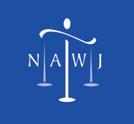Women Under Attack: An Initiative of the Illinois State Bar Association Women and the Law Committee
Written by National Association of Women Judges|November 03, 2020|News
National Association of Women Judges’ District Eight held a program meeting to discuss “Women Under Attack,” an initiative of the Illinois State Bar Association Women and the Law (WATL) Committee members. NAWJ District Eight will work with WATL on this vital matter.
The Women Under Attack initiative is based on three issues: a complaint against a local attorney regarding seeking sexual favors from clients on child custody matters and allegations of sexual assault of female attorneys in his office; the targeting of a federal judge, Judge Salas, which resulted in the killing of her son; and the verbal attack on Congresswoman Alexandria Ocasio Cortez by another congressperson, using profanity and a gender slur.
Judge Michelle Childs, Chair, ABA Judicial Division, spoke to potential security measures for federal judges following the tragic killing of Judge Salas’ son by an attorney who was targeting the judge.
WATL Committee Chair, Cindy Buys, introduced WATL members, Erin Wilson and Dina Ninfo They addressed the mission statement and action platform for the “Women Under Attack” initiative – FLASH, Force of Lawyers Against Sexual Harassment, particularly with respect to anti-harassment actions for female legal professionals, to include court reporters and court clerks.
FLASH is a task force of Illinois legal professionals united to combat the prevalence of sexism, sex-based discrimination, sexual harassment and sexual assault in the Illinois legal community through direct advocacy, policy implementation, education and peer support. Its goals and objectives are to create and foster a safe, respectful and intersectional professional environment for all Illinois legal professionals that adopts a zero-tolerance approach to sexism, sex-based discrimination, sexual harassment and sexual assault.
FLASH’s Work Plan is to:
Practice area specific peer support to provide information and resources for professional transitions;
Peer support for navigating the ARDC process and the professional and personal aftermath;
General mentoring and peer support; and
General education to law schools, bar associations, and the legal community as a whole.
4. Provide recommendations on how to prevent sexism, sex-based discrimination, sexual harassment and sexual assault. Demand accountability from all Illinois legal professionals by requiring mandatory new lawyer and continuing legal education focused on the elimination of sexism, sex-based discrimination, sexual harassment and sexual assault in the Illinois legal community and through the implementation of a consistent code of conduct among Illinois bar associations and professional organizations touching the Illinois legal community.
5. Provide direct advocacy and support to the enactment of legislation and policy aimed at addressing sexism, sex-based discrimination, sexual harassment and sexual assault throughout the State of Illinois.
Judge Ann Breen-Greco, WATL member and NAWJ Eight Director, addressed the third part of the initiative. She discussed the need to be vigilant in speaking out against the use of gender slurs against women and emphasized women should only speak up if they are in a safe space. It should not be left to women solely to address these slurs, but male family members, colleagues, and friends must also take the initiative. Articles on this topic should also be done not only for the legal profession’s newsletters but for publication as broadly as possible.
